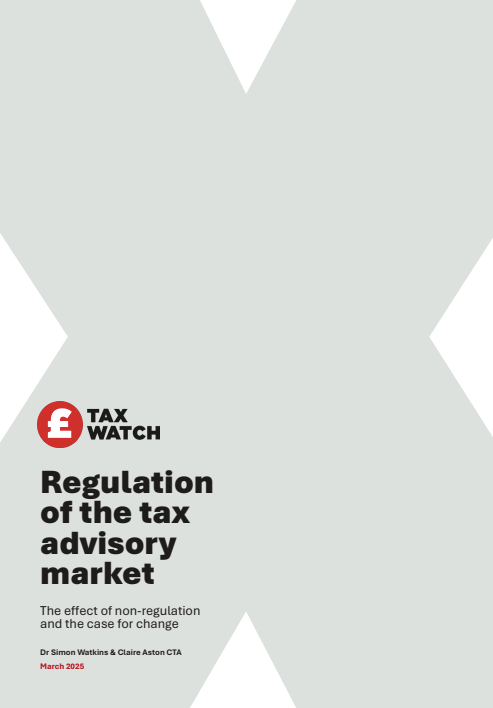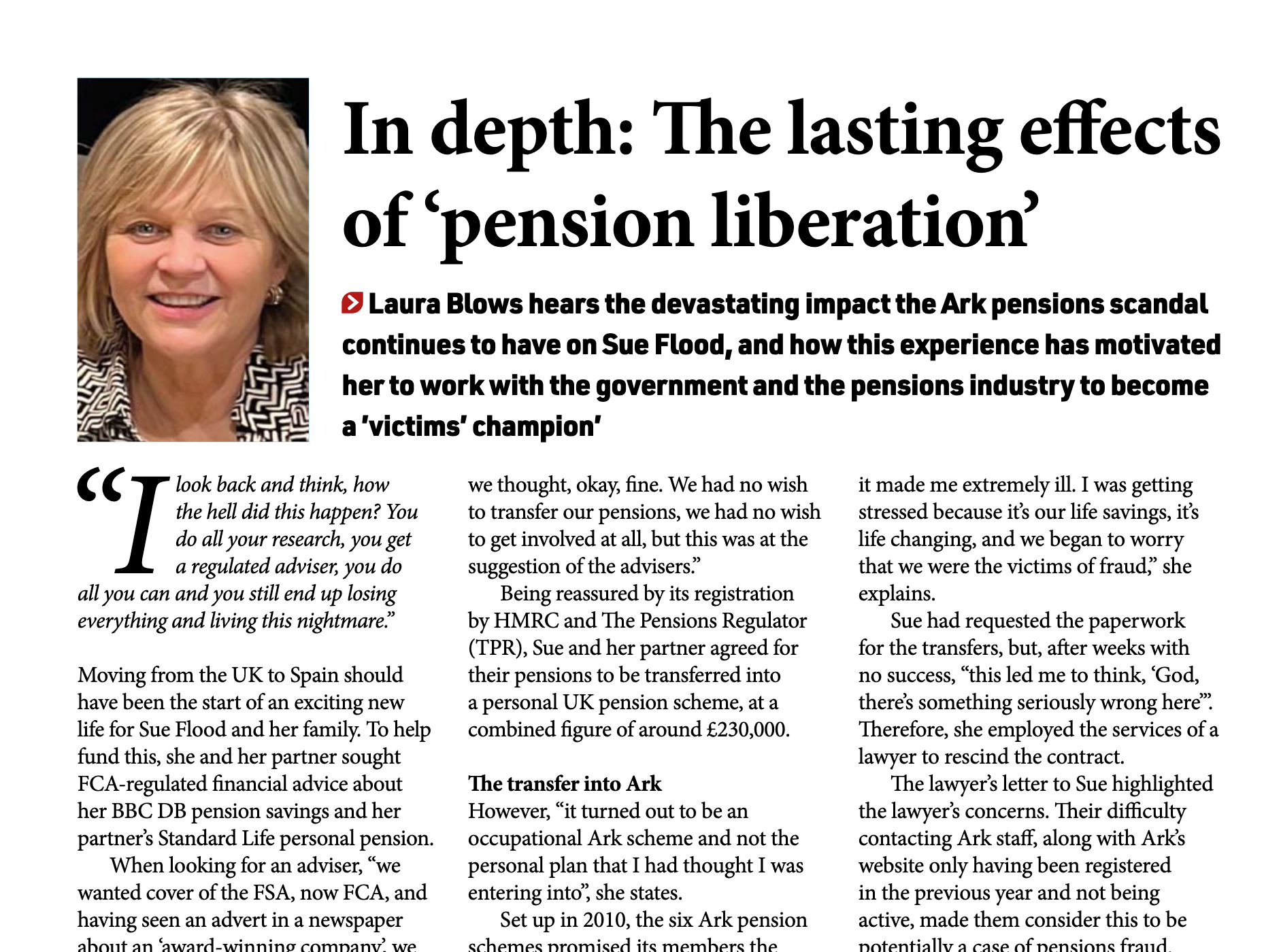Committee Co-Chair Carly Barnes-Short Contributes to TaxWatch Report on the Regulation of the Tax Advisory Market
31 March 2025
Westminster, April 2025– Carly Barnes-Short, co-chair of The Investment Fraud Committee, was recently interviewed by TaxWatch for their recent report, Regulation of the Tax Advisory Market: The Effect of Non-Regulation and the Case for Change. The report highlights the serious risks posed by the minimal regulation in the UK tax advisory market, revealing how this lack of oversight can lead to significant economic harm, including investment fraud and misleading advice to taxpayers.
One of the key findings of the report is the alarming impact that unregulated or poorly regulated tax advisers can have on taxpayers. Specifically, fraudulent tax advisers have caused widespread financial damage to individuals and businesses, particularly in the realm of research and development (R&D) tax relief claims, where one-quarter of claims were found to be erroneous or fraudulent in 2020-21, costing the UK economy over £1 billion in lost tax revenue.
In her interview with TaxWatch, Carly emphasised the need for stronger regulation to protect taxpayers from investment fraud Carly said:
"Investment fraud victims often face not only the financial burden of fraudulent advice but also the emotional and psychological toll of feeling betrayed by trusted professionals. In the current tax advisory market, individuals are exposed to substantial risks when tax advisers operate outside of a regulatory framework. This creates a situation where fraudsters and can exploit a lack of oversight to mislead and defraud taxpayers, resulting in devastating financial losses. A more regulated, transparent system would better protect investors and ensure the integrity of the market."
The TaxWatch report calls for a new independent regulatory body for tax advisers in the UK, ensuring that all practitioners are properly qualified and monitored. This would address the gaps in consumer protection, prevent misleading tax claims, and reduce the significant economic harm caused by fraudulent or erroneous advice.
Carly further explained:
"Without strong oversight, we leave the door open for unethical advisers to exploit vulnerable taxpayers. A new regulatory system would help prevent such exploitation by providing clear standards for tax advisers, better protecting investors, and enhancing consumer confidence. This is not just about protecting individual taxpayers; it's about safeguarding the UK’s economy from billions of pounds in lost tax revenues."
The report highlights a tax advice market that operates like a regulatory Wild West, leaving individuals and businesses vulnerable to poor or exploitative advice.The TaxWatch report also draws on international models, including Australia’s robust regulatory approach, which combines mandatory registration, effective enforcement, and real-time data sharing, as a blueprint for potential reforms in the UK.
Based on its findings, TaxWatch recommends the creation of an independent regulatory body with appropriate statutory powers that would:
- Require registration and minimum qualification standards for all tax advisers
- Implement robust monitoring of compliance with professional standards
- Enable effective data sharing with HMRC to identify emerging risks
- Include proportionate enforcement powers
- Enhance consumer protection through accessible complaints processes and improved safeguards
The report concludes that these reforms would create a regulatory environment that better protects taxpayers while supporting qualified tax advisers in their practice. Effective regulation could help reduce economic impacts on individuals and businesses resulting from poor advice, while also addressing aspects of the tax gap related to non-compliance.
TaxWatch urges the government to prioritise these reforms, noting that the billions lost to non-compliance facilitated by unregulated advisers represent a significant opportunity to strengthen public finances while protecting vulnerable taxpayers from exploitation and getting into ruinous tax debt with HMRC.



